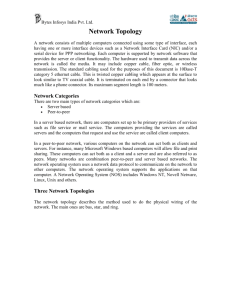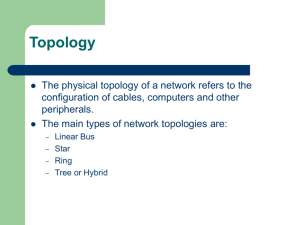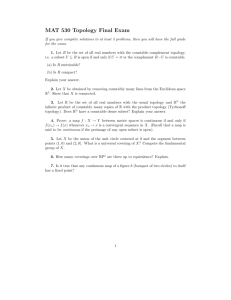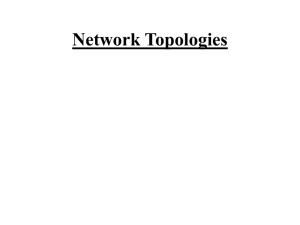Network Topologies: Types, Advantages & Disadvantages
advertisement
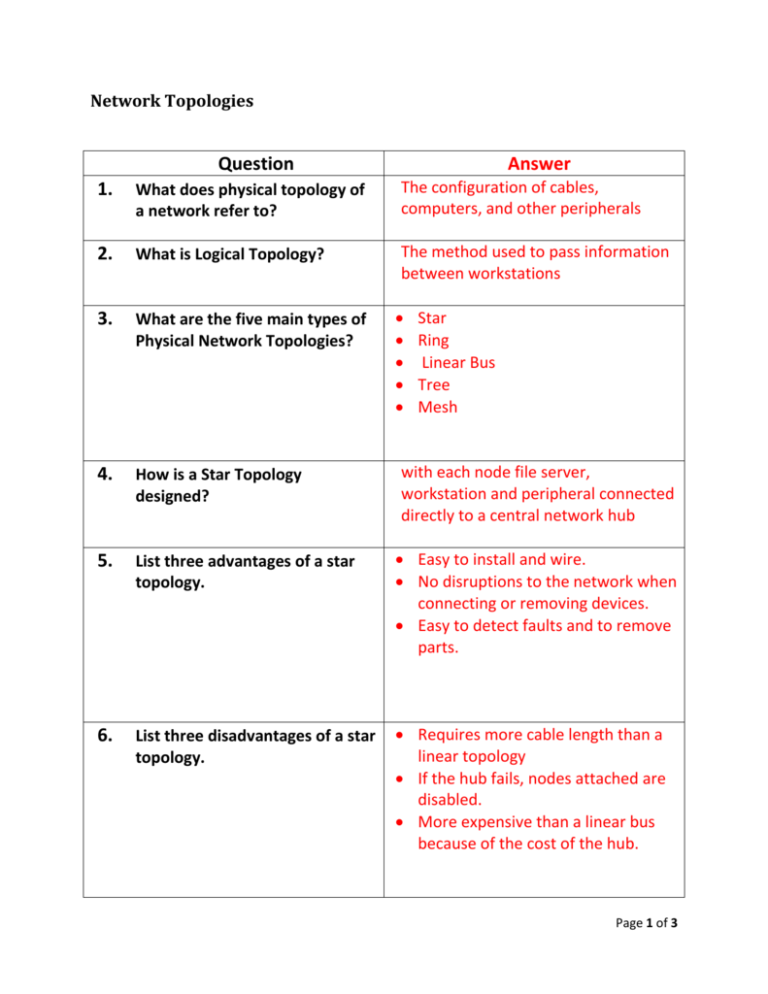
Network Topologies Question Answer 1. What does physical topology of a network refer to? The configuration of cables, computers, and other peripherals 2. What is Logical Topology? The method used to pass information between workstations 3. What are the five main types of Physical Network Topologies? 4. How is a Star Topology designed? 5. List three advantages of a star topology. Easy to install and wire. No disruptions to the network when connecting or removing devices. Easy to detect faults and to remove parts. 6. List three disadvantages of a star topology. Requires more cable length than a linear topology If the hub fails, nodes attached are disabled. More expensive than a linear bus because of the cost of the hub. Star Ring Linear Bus Tree Mesh with each node file server, workstation and peripheral connected directly to a central network hub Page 1 of 3 7. 8. 9. 10. 11. 12. 13. How does a ring topology connect devices? How many neighbors does each device in a ring topology have? What is the advantage of a ring topology? What is the disadvantage of a ring topology? What does a linear bus topology use to connect all network devices? What does the backbone cable function as? What is a “terminator”? in a circle 2 Minimizes the number of cables needed Failure of one device can take down the entire network a common backbone cable a shared communication link The backbone cable stops at each end of the network with a special device Easy to connect a computer or peripheral to linear bus. Requires less cable length than a star topology 14. List two advantages of a Linear Bus Topology. 15. List four disadvantages of a Linear Bus Topology. Entire network shuts down if there is a break in the main cable Terminators are required at both ends of the backbone cable Difficult to identify the problem if the entire network shuts down Not meant to be a stand-alone solution in a large building 16. The Tree Topology is a blend of what? a blend of star and bus networks Page 2 of 3 17. List two advantages of a Tree Topology. Tree Topologies offer excellent flexibility for expansion for example; a single link to the backbone cable can add an entire group of star-configured devices Point-to-point wiring for individual segments 18. List three disadvantages of a Tree Topology. Overall length of each segment is limited by the type of cabling used If the backbone line breaks, the entire segment goes down More difficult to configure and wire than other topologies 19. Which topology connects each network device to many other network devices? List one advantage of a Mesh Topology. List four disadvantages of a Mesh Topology. 20. 21. 22. List the four things to consider when choosing a topology. Mesh Topology Extremely fault tolerant Difficult to implement Difficult to administer Difficult to troubleshoot Expensive Money Length of Cable Needed Future Growth Cable Type Page 3 of 3

